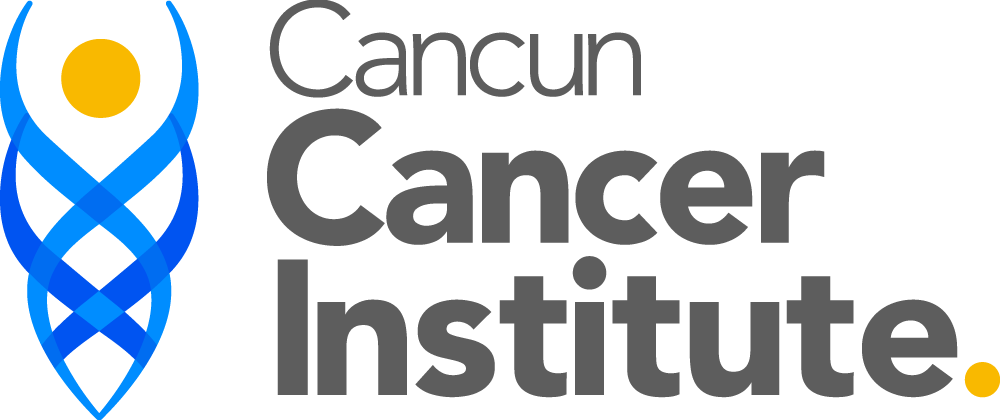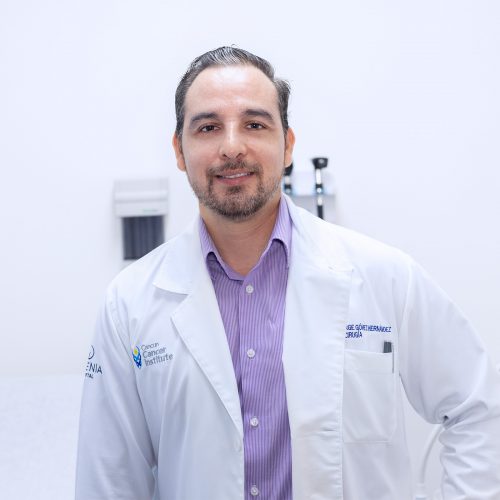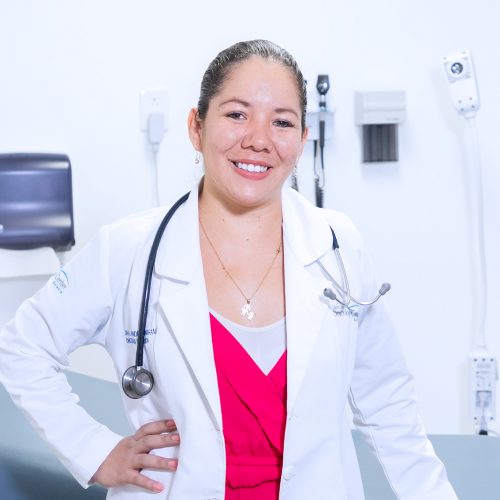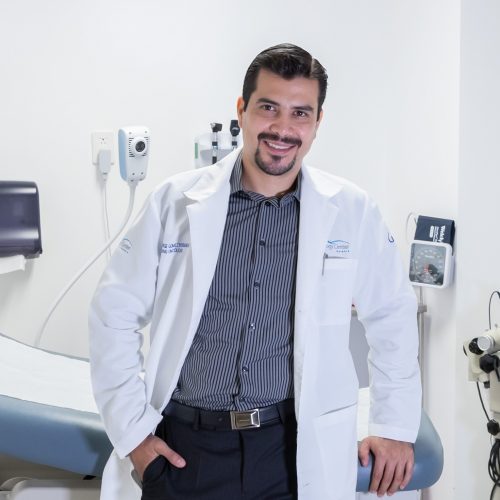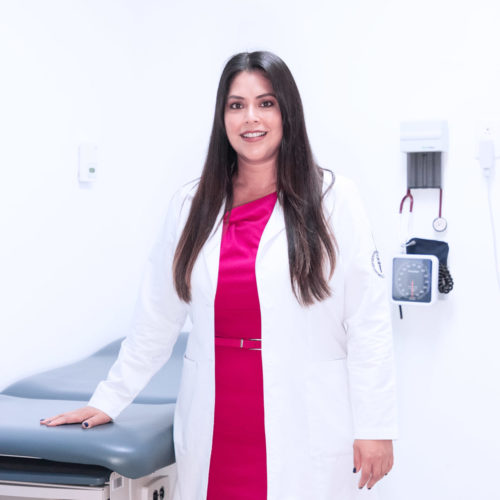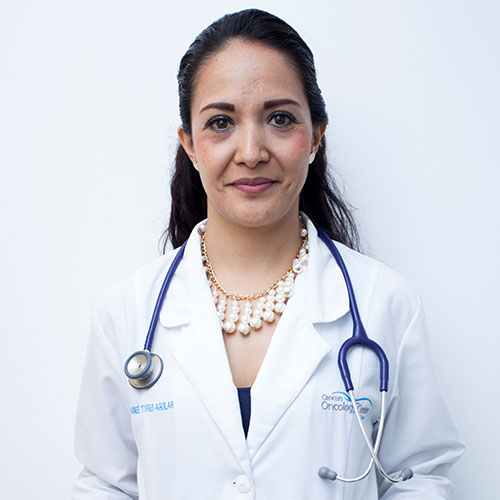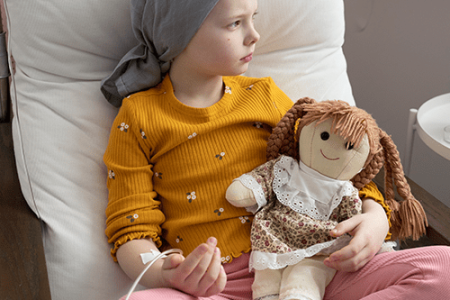Attention schedule
Monday-Friday 08:00 – 18:00 hrs.
Send us a WhatsApp
Call us
Only Comprehensive Cancer Center in Quintana Roo
We treat cancer with a multidisciplinary approach. Our specialists have current certification by the Mexican Oncology Council that allows us to provide quality care and excellence for our patients.
WHAT IS MEDICAL ONCOLOGY?
It is a specialty, derived from Internal Medicine, which is responsible for the study, diagnosis and comprehensive treatment of cancer.
HOW IS CANCER TREATED?
Treatment depends on the primary site, the clinical stage, the characteristics of the tumor and the patient’s conditions. The three main modalities are: Chemotherapy, Oncological Surgery and Radiotherapy.
WHAT IS CANCER?
Group of diseases that can affect any part of the organism, starting with an abnormal cell, which proliferates, evades its death, develops a survival mechanism, invades adjacent tissues and has the ability to travel at a distance.
Alteration in the balance between proliferation and cell death, with the development of a clone capable of invading and destroying adjacent tissues with the ability to spread remotely.
Nuestras Especialidades
Testimonials
What our heroes think…
Currently this disease is curable, the treatment is sometimes uncomfortable for some people for others less, but in the end it is a treatment and the body recovers.
Dr. Marineé not only takes the time to explain in detail each of the treatments but also has the human quality and empathy that is needed to know and trust that you are putting your life in the hands of someone who knows what makes you She is ready, willing to listen to you and accompany you by the hand. She is one of the best human beings I know. Thank you Doc for making my process easy and light.
I felt very confident, my treatment was carried out by Dr. Díaz together with Dr. Jheymmy and my gynecologist-oncologist. The doctors are very nice, the nurses too, the truth is that you feel very comfortable, it is still something very hard and you feel well surrounded, that gives you encouragement and attitude is the most important thing.
Specialists
- Cédula E. 6595892
- Institución E. UDG
- Cédula E. 10062821
- Institución E. UG
- Cédula E. 9109856
- Institución E. UG
- Cédula E. 9990453 / 12232597
- Institución E. UNAM
- Cédula E. 11519776
- Institución E. UNAM
- Cédula E. 11980494
- Institución E. UNAM
- Cédula E. 7930505
- Institución E. Anahuac University
Our publications
Blog

Contact Us
*Required information
Do you have any question?
Frequently asked questions…
It is the use of medications indicated for patients diagnosed with cancer. Unlike radiation therapy and surgery, chemotherapy is considered a systemic treatment. This means that it has action on almost your entire body. The goal of treatment is to destroy malignant cells using blood as a means of transportation. It works by destroying cancer cells by preventing them from growing and multiplying. Because cancer cells have abnormal and accelerated growth relative to healthy cells, chemotherapy destroys them faster.
Chemotherapy is one of the pillars of cancer treatment. Doctors use chemotherapy in different ways at different times:
- Before surgery or radiation therapy to shrink tumors, known as neoadjuvant chemotherapy.
- After surgery or radiation therapy to kill any cancer cells that persist; known as adjuvant chemotherapy.
- As the only treatment, for example, to treat cancers of the blood or lymphatic system. These include leukemia and lymphomas.
- For cancer that comes back after treatment, called recurrent cancer.
- For cancer that has spread to other parts of the body, called metastatic cancer: palliative chemotherapy.
At Cancun Cancer Institute we apply chemotherapy in specific areas known as infusion rooms. Our spacious and comfortable room has 10 seats designed for the application of the treatment, illuminated areas with a cozy atmosphere, television and WiFi.
Intravenous chemotherapy (I.V.). Many chemotherapy drugs are injected directly into a vein. Doctors call it intravenous chemotherapy, or I.V. The treatment takes from a few minutes to a few hours.
Oral chemotherapy. It can be a tablet, capsule, or liquid. Some of these medications are administered daily and others less frequently. For example, a drug can be administered every day for four weeks, followed by a two-week break.
Like most drugs, chemotherapy drugs have side effects. It is easy to confuse these side effects with the symptoms of cancer. Different medications have different short and long-term side effects. Not all chemotherapy drugs cause all side effects. Chemotherapy usually damages cells that are dividing, those parts of the body where normal cells frequently divide. The mouth, intestines, skin, hair, bone marrow are commonly affected. Hair grows all the time. The skin is constantly renewed. The same happens with the walls of the mouth and the digestive system, for this, all these tissues must constantly divide to produce new cells and this makes the symptoms temporary (during treatment).
Doctors generally administer chemotherapy drugs with breaks, so that the patient has time to rest and the body can recover before the next treatment. These pauses allow healthy cells to recover from the effects of medications and grow back. For example, you may receive a dose of chemotherapy on the first day and then have three weeks of recovery before repeating treatment. Each three-week period is called a treatment cycle. Several cycles make up a course of chemotherapy. The number of cycles is individual for each patient and each type of tumor, this should be discussed directly with the doctor once the objectives that the treatment is intended to achieve are explained.
We have agreements with the most important insurers

